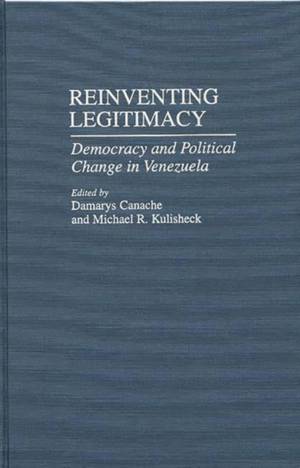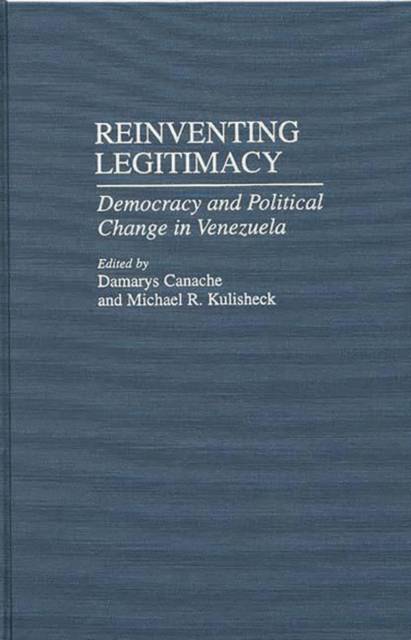
- Retrait gratuit dans votre magasin Club
- 7.000.000 titres dans notre catalogue
- Payer en toute sécurité
- Toujours un magasin près de chez vous
- Retrait gratuit dans votre magasin Club
- 7.000.000 titres dans notre catalogue
- Payer en toute sécurité
- Toujours un magasin près de chez vous
Reinventing Legitimacy
Democracy and Political Change in Venezuela
Damarys J. Canache, Michael Kulisheck
161,45 €
+ 322 points
Description
What makes for an ongoing, successful democracy in Latin America? The essays in this collection emphasize the inherent dynamicism needed to sustain democratic governance. Organized around analyses of political institutions, political parties, public administration and corruption, public opinion, and continuity and change in Venezuelan politics, the essays advance the proposition that Venezuelan democracy survived recent threats because of its capacity to reform institutions and absorb new actors.
The chapter authors include prominent scholars from both the United States and Venezuela, and each grapples with two related questions: What types of reforms are necessary to sustain the process of democratization? And, are actors in the Venezuelan system capable of adopting these changes? A stimulating collection for scholars and researchers dealing with Latin American politics and for those examining democratization in the developing world.Spécifications
Parties prenantes
- Auteur(s) :
- Editeur:
Contenu
- Nombre de pages :
- 264
- Langue:
- Anglais
- Collection :
- Tome:
- n° 11
Caractéristiques
- EAN:
- 9780313306686
- Date de parution :
- 23-07-98
- Format:
- Livre relié
- Format numérique:
- Genaaid
- Dimensions :
- 163 mm x 243 mm
- Poids :
- 594 g







